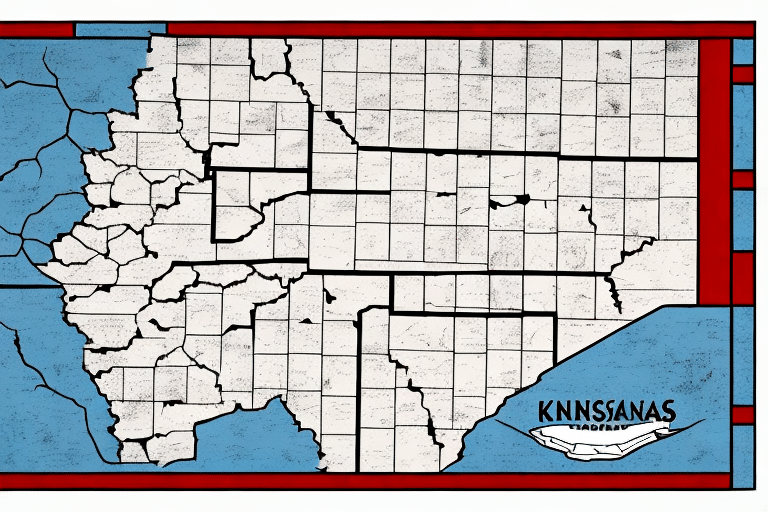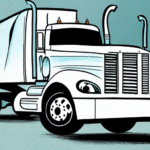How to Get Rid of an Abandoned Trailer: A Step-by-Step Guide
If you own a property and have an abandoned trailer taking up valuable space, it’s crucial to know how to remove it legally and efficiently. This guide provides a comprehensive, step-by-step process for eliminating an abandoned trailer, including identifying the owner, notifying them, and selecting the appropriate removal method. We’ll also discuss legal and cost considerations, along with tips for safe and effective removal. By the end of this article, you'll be equipped with the knowledge to successfully clear your property of any unwanted trailers.
Understanding Abandoned Trailers
What Constitutes an Abandoned Trailer?
An abandoned trailer is typically defined as a vehicle, usually on wheels, that has been left unattended and is no longer wanted on a property. According to Nolo, the specific criteria for abandonment can vary by state, but generally, it includes trailers left without ownership identification for a designated period.
Why Removing Abandoned Trailers is Important
- Aesthetic Impact: Abandoned trailers can detract from the visual appeal of your property.
- Safety Hazards: Disrepair can lead to accidents or injuries.
- Legal Issues: Many jurisdictions have laws against leaving vehicles unattended.
- Property Value: Removing unwanted trailers can enhance property value and attractiveness to potential buyers or renters.
Legal Implications of Abandoning a Trailer
Understanding the Legal Consequences
Abandoning a trailer can lead to significant legal ramifications. In many states, it is illegal to leave a trailer on public or private property without proper authorization. Violations can result in fines or even legal action against both the owner of the trailer and the property owner if the trailer isn’t removed in a timely manner.
Environmental Concerns
Abandoned trailers often contain hazardous materials, such as chemicals or oils, which can pose environmental risks. The Environmental Protection Agency (EPA) emphasizes the importance of proper disposal to prevent contamination of soil and water sources.
Local Laws and Regulations for Removal
Researching State and Local Laws
Every state has its own set of laws regarding the removal of abandoned vehicles. It's essential to consult your local municipal or county office to understand the specific requirements in your area. For example, some states may require a waiting period or a court order before you can legally remove the trailer.
Necessary Permits and Documentation
In some cases, you may need to obtain permits or complete specific forms to proceed with the removal. Ensure you have all necessary documentation to avoid legal complications. Resources like the USA.gov can help you find the appropriate offices and forms.
Identifying and Notifying the Owner
Steps to Identify the Owner
The first step in removing an abandoned trailer is identifying its owner. Check for a license plate, registration tag, or any identifying information on the trailer. If these are unavailable, you can:
- Contact the Department of Motor Vehicles (DMV) for owner records.
- Search public records or use online databases.
- Reach out to neighbors or local businesses for information.
Notifying the Owner
If you successfully identify the owner, notify them formally. Sending a certified letter is recommended as it provides proof of notification. The letter should outline the need for removal, a deadline, and potential legal actions if the trailer isn’t removed.
Removal Methods: DIY vs Professional Services
DIY Removal
If you have the necessary equipment and expertise, you might opt to remove the trailer yourself. This typically involves:
- Securing a suitable vehicle, such as a flatbed truck.
- Safely lifting the trailer onto the truck.
- Transporting it to a disposal or recycling facility.
However, DIY removal carries risks, including potential property damage or personal injury. Ensure you follow all safety protocols if you choose this method.
Hiring Professional Services
For those who prefer not to handle the removal themselves, professional services are available. These companies offer:
- Expertise: Trained professionals who can handle the trailer safely.
- Equipment: Specialized tools necessary for removal and transport.
- Disposal Options: Assistance with environmentally responsible disposal or recycling.
While more costly, hiring professionals can ensure the job is done correctly and safely.
Cost Considerations and Budgeting
Factors Influencing Removal Costs
The cost of removing an abandoned trailer can vary based on several factors, including:
- Trailer Size and Condition: Larger or more damaged trailers may cost more to remove.
- Location: Accessibility and distance to disposal sites can affect pricing.
- Disposal Fees: Charges for recycling or landfill disposal.
Obtaining Quotes
To ensure you receive fair pricing, obtain quotes from multiple removal services. Compare services offered, costs, and customer reviews to make an informed decision.
Safe and Responsible Disposal
Recycling and Repurposing
Whenever possible, opt for recycling or repurposing parts of the trailer. This not only reduces environmental impact but can also be more cost-effective. Organizations like Earth911 provide resources on recycling options.
Disposing at Licensed Facilities
If recycling isn’t feasible, ensure the trailer is disposed of at a licensed landfill. Verify that the facility complies with local environmental regulations to prevent further issues.
Preventing Future Incidents
Implementing Property Policies
To avoid future problems with abandoned trailers, establish clear policies regarding vehicle storage on your property. This can include:
- Requiring registration of all vehicles on the premises.
- Setting clear guidelines for parking and storage.
- Regularly inspecting the property for unauthorized vehicles.
Reporting and Monitoring
Stay vigilant by monitoring your property and promptly reporting any suspicious or abandoned trailers to local authorities. Early intervention can prevent the trailer from becoming a long-term issue.
Conclusion: Take Action to Remove Abandoned Trailers from Your Property
Abandoned trailers can negatively impact both the aesthetic and functional aspects of your property. By following the comprehensive steps outlined in this guide, you can legally and safely remove unwanted trailers, enhance your property’s value, and prevent future occurrences. Always adhere to local laws, consider the most appropriate removal method, and prioritize safety and environmental responsibility in the disposal process. Taking proactive measures ensures your property remains clear and valuable.






















